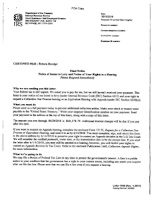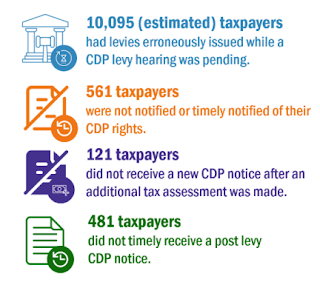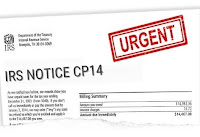Amid rising concerns about a flood of improper Employee Retention Credit claims, the Internal Revenue Service today announced an immediate moratorium through at least the end of the year on processing new claims for the pandemic-era relief program to protect honest small business owners from scams.IRS Commissioner Danny Werfel ordered the immediate moratorium, beginning today, to run through at least Dec. 31 following growing concerns inside the tax agency, from tax professionals as well as media reports that a substantial share of new claims from the aging program are ineligible and increasingly putting businesses at financial risk by being pressured and scammed by aggressive promoters and marketing.
The IRS continues to work previously filed Employee Retention Credit (ERC) claims received prior to the moratorium but renewed a reminder that increased fraud concerns means processing times will be longer. On July 26, the agency announced it was increasingly shifting its focus to review these claims for compliance concerns, including intensifying audit work and criminal investigations on promoters and businesses filing dubious claims. The IRS announced today that hundreds of criminal cases are being worked, and thousands of ERC claims have been referred for audit.
The IRS emphasizes that payouts for these claims will continue during the moratorium period but at a slower pace due to the detailed compliance reviews. With the stricter compliance reviews in place during this period, existing ERC claims will go from a standard processing goal of 90 days to 180 days – and much longer if the claim faces further review or audit. The IRS may also seek additional documentation from the taxpayer to ensure it is a legitimate claim.
This enhanced compliance review of existing claims submitted before the moratorium is critical to protect against fraud but also to protect the businesses from facing penalties or interest payments stemming from bad claims pushed by promoters, Werfel said.
"The IRS is increasingly alarmed about honest small business owners being scammed by unscrupulous actors, and we could no longer tolerate growing evidence of questionable claims pouring in," Werfel said. "The further we get from the pandemic, the further we see the good intentions of this important program abused. The continued aggressive marketing of these schemes is harming well-meaning businesses and delaying the payment of legitimate claims, which makes it harder to run the rest of the tax system. This harms all taxpayers, not just ERC applicants."
"For those people being pressured by promoters to apply for the Employee Retention Credit, I urge them to immediately pause and review their situation while we look to add new protections and safeguards to stop bad claims from ever coming in," Werfel said. "In the meantime, businesses should seek out a trusted tax professional who actually understands the complex ERC rules, not a promoter or marketer hustling to get a hefty contingency fee. Businesses that receive ERC payments improperly face the daunting prospect of paying those back, so we urge the utmost caution. The moratorium will help protect taxpayers by adding a new safety net onto this program to focus on fraudulent claims and scammers taking advantage of honest taxpayers."
In addition, the IRS is finalizing details that will be available soon for a special withdrawal option for those who have filed an ERC claim but the claim has not been processed. This option – which can be used by taxpayers whose claim hasn't yet been paid– will allow the taxpayers, many of them small businesses who were misled by promoters, to avoid possible repayment issues and paying promoters contingency fees. Filers of these more than 600,000 claims awaiting processing will have this option available. Those who have willfully filed fraudulent claims or conspired to do so should be aware, however, that withdrawing a fraudulent claim will not exempt them from potential criminal investigation and prosecution.
As part of the wider compliance effort, the IRS is working with the Justice Department to address fraud in the ERC program as well as promoters who have been ignoring the rules and pushing businesses to apply.
The IRS has trained auditors examining ERC claims posing the greatest risk, and the IRS Criminal Investigation division is actively working to identify fraud and promoters of fraudulent claims for potential referral for prosecution to the Justice Department.
IRS Criminal Investigation (IRS-CI) investigates a variety of COVID fraud allegations ranging from fraudulently obtained employee refund tax credits to falsified Paycheck Protection Program loans. To date, IRS-CI has uncovered suspected pandemic fraud totaling more than $8 billion. As of July 31, 2023, IRS-CI has initiated 252 investigations involving over $2.8 billion of potentially fraudulent Employee Retention Credit claims. Of those, fifteen of the 252 investigations have resulted in federal charges. Of the 15 federally charged cases, so far six matters have resulted in convictions, four of those cases have reached the sentencing phase with the average sentence being 21 months.
Criminal Investigation's work is in addition to ERC audits that have started. The IRS has already referred thousands of ERC cases for audit.
Have An Employee Retention Credit Claim?
Contact the Tax Lawyers at
Marini & Associates, P.A.














